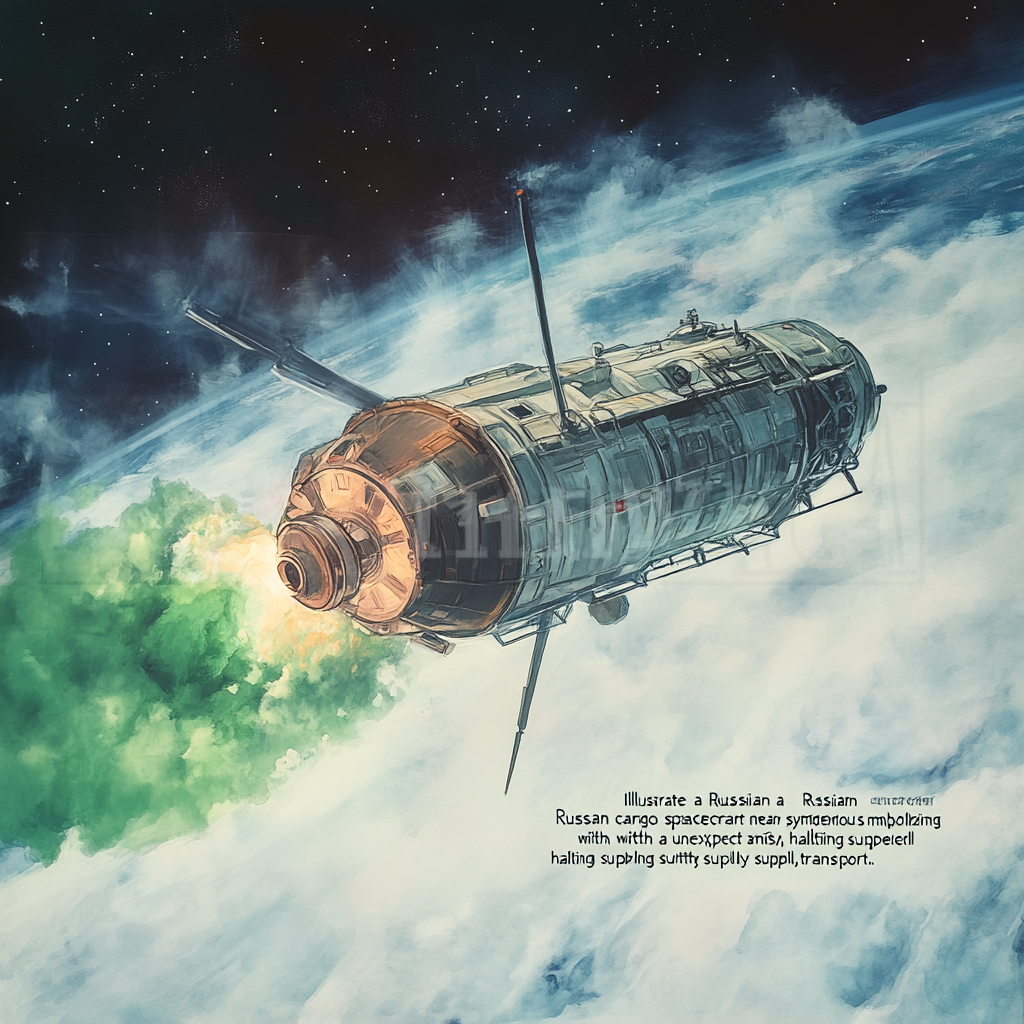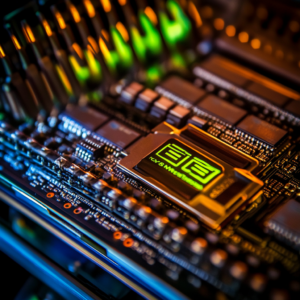
“Sensory Surprise Postpones Space Station Supply Mission”
In a remarkable twist that could only be scripted in the bizarre narrative arc of space travel, the latest Russian cargo spacecraft has delivered an unexpected surprise—an odor so peculiar that it halted the transport of essential supplies to our brave astronauts aboard the International Space Station (ISS). This incident isn’t just your run-of-the-mill space hiccup; it’s a pungent reminder of the many complexities involved in interstellar journeys.
Let’s roll the clock back to November 23, 2024. The Progress MS-29 spacecraft, or Progress 90 as NASA refers to it, made its way to the ISS’s Poisk module, launching from the legendary Baikonur Cosmodrome just two days earlier, on November 21. Upon arrival, the cosmonauts unfurled their hopes for a routine delivery, only to be greeted by an olfactory ambush. An unexpectedly strong, and frankly unpleasant smell wafted forth as they attempted to open the hatch, mingling with a mysterious assortment of small droplets that refused classification. It’s the kind of cosmic curveball that even the most seasoned spacefarers did not see coming.
In response, the crew acted swiftly, closing the hatch of the Poisk module—because who needs a smelly space capsule when you can isolate the mystery and avoid turning the ISS into an intergalactic cesspool? This decisive action was all about ensuring safety for the crew and preventing any funky contaminants from spreading, a precaution that channels every parent who’s ever told their kid, “If you don’t behave, you’ll go to your room!”
Now, let’s talk air quality monitoring—possibly the most glamorous job floating in zero gravity. Both NASA and Roscosmos sprang into action, activating air scrubbers and deploying contaminant sensors like seasoned ghostbusters scouting for ectoplasm. Gratifyingly, the checks confirmed the air quality was still good; no hiccups there! It’s like finding out your car’s engine is fine after hearing a strange noise; a big sigh of relief echoed throughout the station.
While all this seems dramatic, the Russian cosmonauts opened the hatch while donning extra protective gear, a dramatic flourish that underscores the seriousness of the situation. It’s akin to wearing a hazmat suit at a family reunion only to find out Aunt Edna’s casserole is the true nutritious enemy.
However, the plot thickens! This isn’t the first rodeo for Russian spacecraft at the ISS. Previous encounters included coolant leaks from the Soyuz MS-22 spacecraft back in December 2022, and again later with Progress MS-21 in February 2023. This should be the point where we drop a dramatic soundtrack, perhaps a faint sound of warning sirens in the background. The laundry list of woes even includes a radiator leak from the Nauka module in October 2023, which is enough to give any space engineer nightmares involving spreadsheets and coolant.
The Soyuz MS-22 leak was particularly troubling, prompting Roscosmos to send a replacement uncrewed Soyuz to handle things. Talk about a last-minute switch; this maneuver extended the stay of two Russian cosmonauts and NASA astronaut Frank Rubio from a neat six months to an eyebrow-raising one-year adventure. Russian officials pointed to micrometeoroids or orbital debris as the culprits for these pesky leaks, an explanation that’s been met with skeptical eyebrows from the space community. It’s like when someone tries to blame the dog for the mess on the carpet—you want it to be true, but there’s always that nagging doubt.
Fast forward back to the present, where the crew was feverishly working to reopen the hatch of the Progress spacecraft while other station activities ticked along happily in the background. While the Progress MS-29 is now expected to hang around the ISS for several months like an uninvited guest, it will eventually head back to Earth in 2025—where it will dispose of a collection of trash and unnecessary items by burning them up in the atmosphere. A poetic end!
This odd yet strangely fascinating incident highlights the myriad challenges space missions face—illustrating that, despite all that technology, space travel is still fraught with the peculiarities and complexities of the unknown. While crew safety was ensured and science triumphs once again, it serves as an uncanny reminder that even in the ultimate high-tech domain, a whiff of the unknown can become a game-changer faster than you can say "space stinks."
If you're curious about what it truly means to traverse the cosmos, this little slice of drama proves that even in the silence of space, there's plenty to keep you alert—and yes, even a little entertained.
For those keen beans who wish to remain at the forefront of space exploration news, particularly on thrilling escapades like the one we just explored, I invite you to subscribe to our inner circle. Don’t miss a beat—come join our community for regular updates on everything from the ISS to the latest on Russian spacecraft adventures. Want to stay up to date with the latest news on neural networks and automation? Subscribe to our Telegram channel: @channel_neirotoken.
In the ever-expanding universe where the ordinary often collides with the extraordinary, staying informed is not just an option—it is a necessity.

